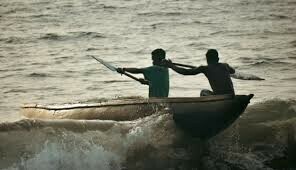National Consultation Held for Fisheries and Aquaculture Policy 2025-2035
The inaugural national consultation for Pakistan’s first-ever National Fisheries and Aquaculture Policy 2025-2035 has been conducted, uniting crucial stakeholders from across the nation to define a cohesive and comprehensive national strategy.
Federal Minister for Maritime Affairs Muhammad Junaid Anwar Chaudhry stated this while addressing a workshop on Wednesday. The Ministry of Maritime Affairs organised the workshop with technological assistance from the Food and Agriculture Organization (FAO), with the aim of creating the National Fisheries and Aquaculture Policy 2025–2035.
Junaid Anwar Chaudhry mentioned that despite Pakistan’s abundant marine and inland water resources, the fisheries and aquaculture sector has remained largely undeveloped and underutilised for an extended period.
He highlighted that the sector presently contributes less than 0.5% to the national gross domestic product (GDP), thus realizing minimal value from both local and international markets.
The minister emphasised that a primary goal of the new policy is to encourage federal-provincial cooperation. He affirmed that the Ministry of Maritime Affairs would continue to take the lead on significant national matters, such as meeting international responsibilities and boosting seafood exports.
He further added that the policy also concentrates on overarching priorities, including climate resilience, environmental preservation, child protection, gender equality, labour rights, and the integration of modern technologies.
The minister characterised the policy as a basic and evolving framework, with its success hinging on consistent dedication, efficient coordination, and proactive involvement from all stakeholders throughout the country.
He stated that the policy signifies a substantial achievement, not just for the ministry but for all institutions, communities, and stakeholders invested in the advancement of Pakistan’s blue economy.
Secretary of Maritime Affairs Syed Zaffar Ali Shah remarked that despite Pakistan’s extensive coastline, the fisheries sector has not yet reached its full potential.
Shah stated that the sector is still a vital source of income but is confronted with severe problems, such as overfishing and inadequate regulation.
He noted that the newly proposed national policy seeks to address these issues through coordinated planning. He predicted that with enhanced management and value addition, the sector has the potential to generate up to $10 billion in value.
FAO Representative Florence Rolle highlighted the necessity for robust coordination between provincial and federal governments, as well as across various sectors. She emphasised that inclusive seminars were held nationwide to help shape the policy.
Rolle commended Balochistan’s proactive approach to developing its fisheries policy and pointed out that sustainable practices have the potential to attract international climate funding.
Dr Syed Murtaza Hassan Andrabi, Animal Husbandry Commissioner from the Ministry of National Food Security, stressed that the final policy should be both ambitious and realistic. He emphasised the significance of stakeholder involvement, particularly given that fisheries are frequently neglected and highly susceptible to climate change. He added that the policy must reflect the distinct ecological and cultural attributes of each province.
FAO’s Senior Policy Specialist, Dr Kanwar Muhammad Javed Iqbal, detailed the policy’s key elements, including fiscal incentives, ecosystem preservation, women’s empowerment, safe working conditions, entrepreneurship, job creation, and pollution management.
Dr Iqbal outlined the inclusive, phased development of the national policy, commencing with provincial consultations. He emphasised that responsible resource management and effective governance are central to the strategy, guaranteeing long-term sustainability and resilience within the fisheries sector.
The workshop incorporated several panel discussions, including sessions on governance and incentives for the fisheries and aquaculture sectors, strategies for aquaculture development and management in Pakistan, and the implementation framework and cross-cutting themes of the national policy.
Younas Anwar from Mahigir Itehad Gwadar, Nasir Rahim Sohrabi of RCDC Gwadar, and Syed Daim Shah, President of the Aquaculture Farmers Association, also delivered speeches at the event, which was attended by representatives from Balochistan and Sindh’s fisheries industries, as well as academics and policymakers.



Comments (0)
No comments yet. Be the first to comment!
Leave a Comment